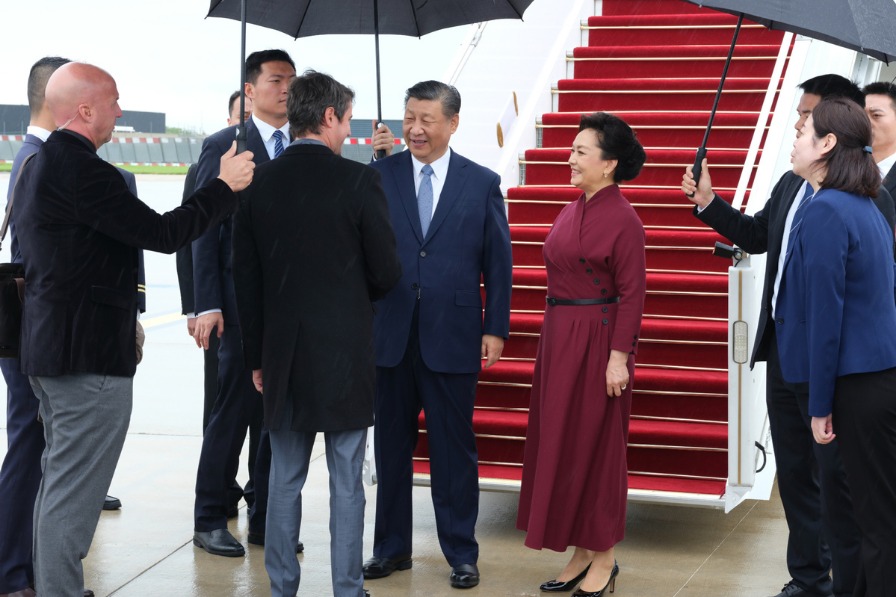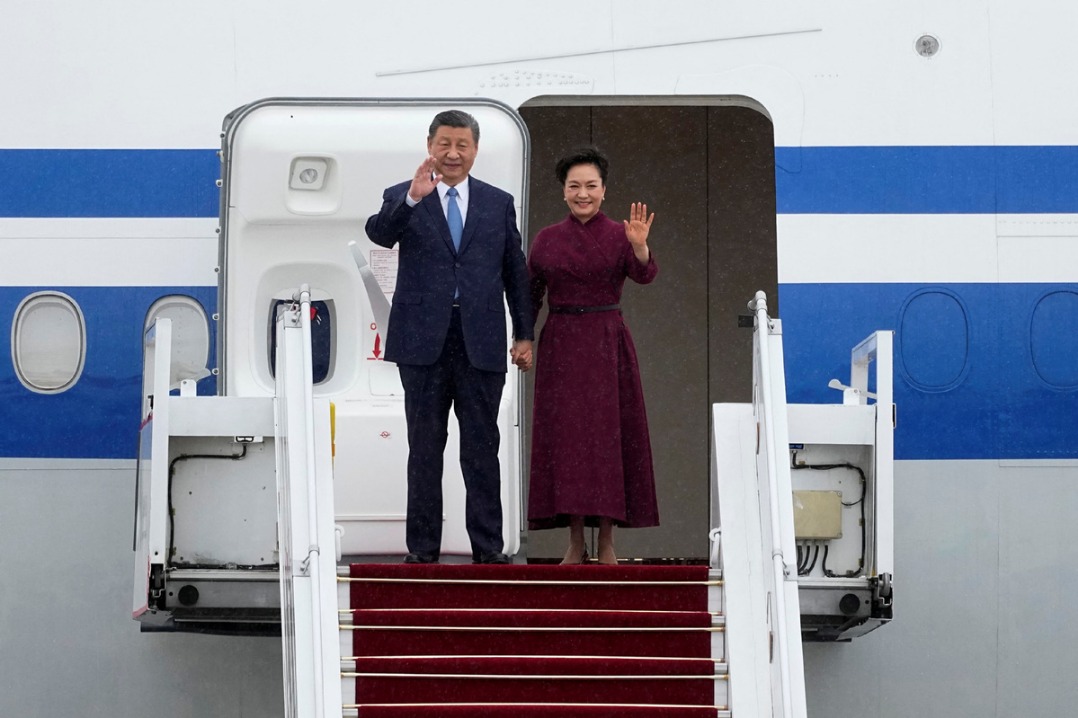Break with the past
By LUIGI GAMBARDELLA | China Daily Global | Updated: 2020-04-13 08:53

The pandemic has accelerated the new globalization driven by tech and digital transformations
Is globalization at risk because of the pandemic? Amid the novel coronavirus outbreak, almost all nations are taking measures to close borders and limit international contacts. Economists have for this reason qualified the virus as a "black swan" event disrupting the globalized supply chain and specialization of international trade. The pandemic has thus cast dark clouds over growth in China, Europe and beyond.
The situation is serious. The virus has killed more than 82,000 people and sickened more than 1.4 million across the world as of April 8, according to the data compiled by Johns Hopkins University.
But economic growth is indispensable to fight diseases, since developing new drugs requires significant investment. In 2019, the Journal of Health Economics estimated it cost $2.6 billion to develop a new prescription medicine with market approval. Without economic growth health research funding will come to a halt. It would, therefore, be wrong to consider the fight against the novel coronavirus pandemic and economic growth as an either.
Economic activities in China were suspended at the end of January. However, following aggressive measures that have gradually brought the situation under control, China has seen its economic activities, manufacturing and domestic tourism starting to rebound in recent weeks. For instance, by April 1, nearly 3,000 prominent tourism attractions across the country had reopened to the public, as shown by figures published by Ctrip.com, China's largest online travel service provider.
But, the world will never be the same again. The virus has shed a light on the vulnerability of the complex highly-intertwined global supply chain. Companies disaggregate, break down their stages of production and outsource them. Today, two-thirds of world trade is intermediate inputs rather than finished goods and services. Trade specialization-the economic concept that journalists and politicians call globalization-is about "unbundling" the production process allowing each nation to specialize in what it can produce at the comparatively lowest cost, optimizing resource allocation all over the world. This "unbundling" has lowered the costs of manufacturing and transactions, dramatically promoted the imports and exports around the world and spurred consumption by providing more choices and cheaper products to consumers.
This model has been put into question by the novel coronavirus crisis, which has showed how sensitive international trade specialization is in a global emergency. We must, therefore, look for ways both reap the benefits of trade specialization and ensure the security of supplies in case of crisis. Zara, the world's largest fast-fashion retailer, and its super agile supply chain offers some food for thought. The Spanish giant has kept its core design and manufacturing, together with its distribution center, in Spain or places nearby, making the behemoth able to respond to market demands and deliver products in no time to its biggest market, Europe. Zara expanded its manufacturing sites when its business grew beyond Europe, and farmed out those non-time-sensitive fashion items to suppliers in Asia, where market share accounts for only a small fraction of the total for the time being. Zara's owner Inditex Group has continued to report sales growth and increased profit margins.
Tech advances and digital transformation will assist this trend toward what we could already call the "new globalization". Digital tools brought about by 5G-such as remote controlling, cloud computing and 3D printing, allow production to be moved closer to the target retail markets.
We can take it for granted that companies will accelerate the reorganization of their supply chains to further reduce their reliance on suppliers from one individual country and by including back-up suppliers in their process.
Both China and Europe will be faced with the challenges posed by this new globalization and the reorganization of their supply chains.
While working around the clock to prevent and contain the virus, both Europe and China should keep in mind that a silver bullet to fight the pandemic and possibly future ones is to shore up our economies, restore and normalize global trade as soon as possible, adapt to this new globalization, and eventually fully equip our societies against the damages of possible new pandemics.
To achieve this, inputs into research and development are a must, for both China and Europe. We should not only dedicate funds to the health sector, but also to digitalization, AI, and other tech advances to inject momentum into their development. The experiences in China, the Republic of Korea and Europe have shown that digitization is among the best means to enable social distancing while keeping the economy running. At the same time, artificial intelligence can play a key role in identifying existing remedies suited to tackle new viral threats. Let us take this challenge as an opportunity to improve our resilience to future crises and strengthen the new globalization system with increased policy coordination and cooperation between China and the European Union.
The author is president of ChinaEU, a Brussels-based international association. The author contributed this article to China Watch, a think tank powered by China Daily. The views do not necessarily reflect those of China Daily.
























